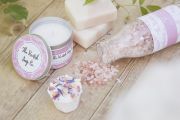Choosing giftware for your garden centre
Garden centres have become destinations in their own right. No doubt your garden centre provides a variety of services for your customers in addition to plant sales, such as a restaurant and a retail range of homeware, lifestyle products and gifts. With something to appeal to the whole family, it is a fun day out for many. This broad range of customers will be looking for something different and, with this in mind, here are three tips for selecting giftware for your loved ones that you may not have considered:
Opt for sustainable gifts
Demand from consumers for sustainable products is here to stay, and for all the right reasons. Although governments are slowly moving towards their sustainable goals, it is businesses that are the ones that are really driving ahead. A garden centre, with its close association with nature, is placed in an inherently strong position to provide customers with a range of eco-friendly gifts. But it’s important to dig a little further than the product headlines.
Plastic-free packaging (although that doesn’t always mean totally free from plastic!) is more obvious, and a natural soy wax candle may sound impressive, but how has that soya been produced? Perhaps it’s come from an area of deforestation rather than from European based sources where it has been grown on existing farmland, for example.
An additional part to this story is the ethical sourcing of materials. The Fairtrade initiative has been a great success, but there are other, more subtle ways in which smaller suppliers in particular are able to support ethical sourcing. At The Kentish Soap Company, for example, our shea butter comes from a West African women’s cooperative, where funds go directly to the women in the local villages rather than to a larger business.
How can you, as a buyer, assess the sustainability of a brand and its products? There is no substitute for speaking to the gift supplier. This may take up a little more time, but the story a garden centre can present to its customers as a result demonstrates additional care and credibility, as well as helping to educate the consumer. But here are a few useful tips to help you on your way:
- Don’t be blinded by symbols. There are some very good ones, but some have been developed by manufacturers for their own needs. Awards tell a better story since you know they’ve been independently assessed.
- Look at the story behind the brand. You will get an indication as to whether sustainability is at the heart of what they do or an add-on, or whether they’ve made real strides. Too much emphasis on “goals” for improvement may suggest lower commitment. A company that has put in significant time and energy to improve their products’ sustainability will be delighted to explain the steps they have taken and have their efforts recognised.
- How is the packaging recyclable? Look for household compostable packaging or packaging that is accepted as recyclable by local authorities.
- For household fragrances (candles and reed diffusers for example) and cosmetics, look for products made with natural essential oils and not “parfum” which is typically artificial and has hence been through heavier industrial processing.
- Avoid products that are obviously packaged in plastic. If you’re able to, dig deeper to make sure there are no hidden plastic elements.
Customers love products from indies
As an independent artisan producer we’ve seen this ourselves, and even more so over the last year or so during the pandemic. Indies often have a great back-story, which garden centres can leverage by showcasing them and allowing customers to see that the centres are supporting a unique business. We’ve even carried out “meet the maker” days at retail locations to help build the connection between the sales outlet, product and consumer. And when it comes to gifts, what better than to receive a gift from an artisan that you’ve not seen elsewhere?
Are the gifts suitable for vegans?
I can imagine a world in the future, in my lifetime, where you order a driver-less car on your device to take you to your destination. Driving your own cars will be far less common, particularly in urban areas. I can also foresee a world where eating less meat, or even no meat at all is the norm. As controversial as that statement may be, there is no doubt that more and more people are adopting a vegan lifestyle.
This extends beyond food to clothing and in the home. A beeswax candle isn’t suitable for a vegan for example, and a number of commercial soaps contain tallow (i.e. animal fat). In an evolving marketplace, it seems to make good business sense to ensure that your giftware products cater for changing consumer needs and do not exclude this growing sector of the market.
Given the increase in demand for sustainable products, support for independent businesses and the rise of veganism, providing customers with associated giftware choices not only widens your customer-base but can also enhance the way that your garden centre is perceived by consumers.

